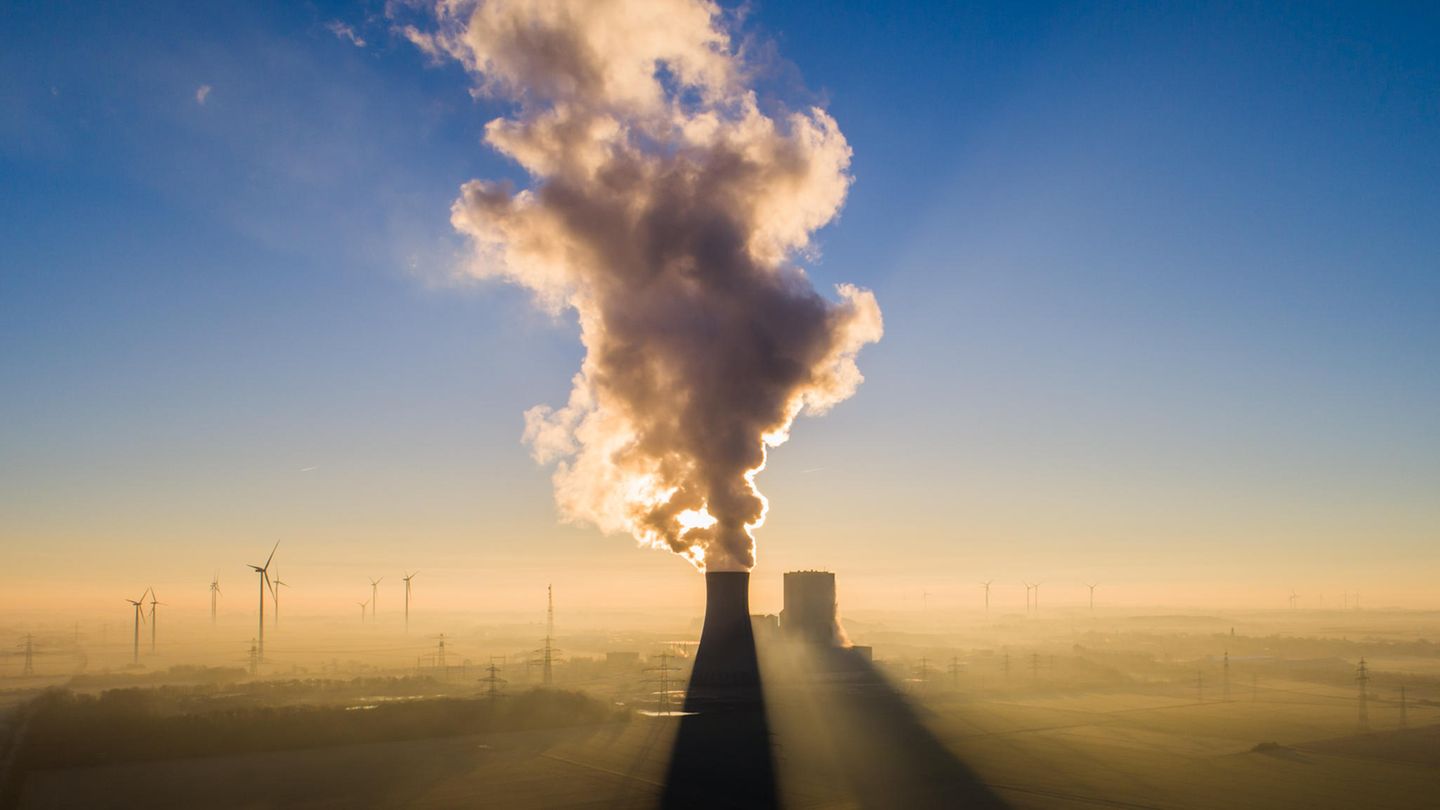Opinion
Actually, it’s a day to celebrate. We have achieved the climate targets. However, the price that some are paying for it shows that future climate policy cannot look like this.
CO₂ emissions in Germany are falling! The savings targets are achieved! Breathe a sigh of relief! Yes, we can! More coal power? Doesn’t matter. Bigger cars? Doesn’t matter. It doesn’t matter, emissions are falling.
Well, not really.
The 1.9 percent decline is good news, yes. But it also shows the major problem of current climate policy. It is the opposite of innovation. It is the opposite of openness to technology. It is what the FDP should actually prevent with all its might.
Industry saved us this year. Almost 20 million fewer CO₂ equivalents were emitted in this area in 2022. Not through more efficient processes or climate-friendly measures, but simply through the slump in production. As was the case at the end of the GDR or during the financial crisis, it has been shown again and again that if production and economic costs decrease, emissions also decrease. It’s the classic argument of the post-growth preachers: If we are willing to forgo economic growth, climate neutrality will come naturally.
The climate doesn’t care why emissions are falling. It doesn’t matter to him whether there are fewer combustion engines cruising down the freeway or more people squatting in cold apartments. It doesn’t matter whether companies cut back production or domestic flights are banned. The climate also doesn’t care whether a forest is planted or a house renovated – as long as emissions decrease. The FDP would therefore like to record the emission savings independently of the sector. That means: no matter in which area we save, the main thing is that we achieve the goal. That sounds temptingly logical.
And is temptingly simple. Transport Minister Volker Wissing can now sit back and relax, although the emissions in his sector are also rising sharply this year, because the economy is collapsing at the same time, the overall climate target will be achieved. Unfortunately, the idea has a catch: We can’t care less about it than the climate.
How we save emissions is a political decision
For two reasons: without the climate everything is nothing, but the climate is not everything. Our policy cannot only be based on what saves emissions, it must also keep an eye on the consequences. If industry in Germany collapses – who can argue with that – that would be a very bad consequence. Others would find it bad if no one could afford to fill up because the fuel would be so expensive. Others would find it worse if people could no longer afford to heat their homes. Still others would find it an encroachment on their freedom if they were no longer allowed to speed down the freeway at 150 km/h. All of these points are decisions. They have to be met politically. You can’t just let them pass.
Second, these decisions will become increasingly difficult to make. If we want to achieve the climate goals in the next few years (and we should), then emissions have to fall much more. To be more precise: From now on, things have to go three times as fast every year. Achieving our goals by having the economy die out completely is just not an option. It will not be enough for a few houses to be renovated or for a speed limit to be introduced. If savings were only made in individual areas, the respective measures would have to become more and more extreme over time. If everyone would sit back like Volker Wissing and from now on entrust the achievement of the climate goals to his ministry alone, we would be pretty quick with driving bans – and not on Sundays.
That’s why the current report has to shake things up – despite the supposedly positive message. It has to show us that we have to change in all areas so that the changes in one area don’t become too extreme, too restrictive of freedom, too brutal. For the industry this means: transformation. With efficiency and innovation. So that in the end we don’t pay for the achievement of our climate goals with the demise of German companies.
Source: Stern
I have been working in the news industry for over 6 years, first as a reporter and now as an editor. I have covered politics extensively, and my work has appeared in major newspapers and online news outlets around the world. In addition to my writing, I also contribute regularly to 24 Hours World.




